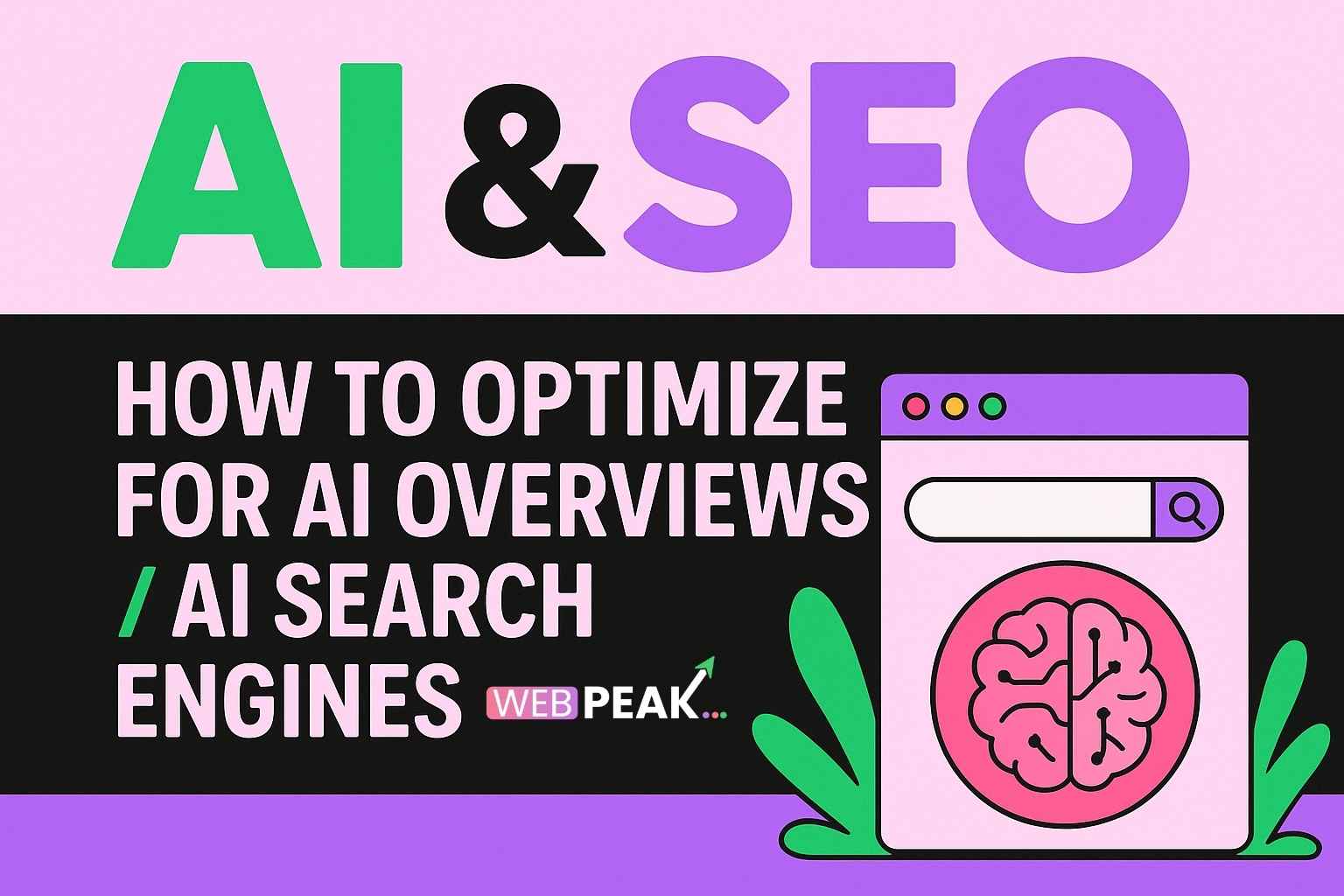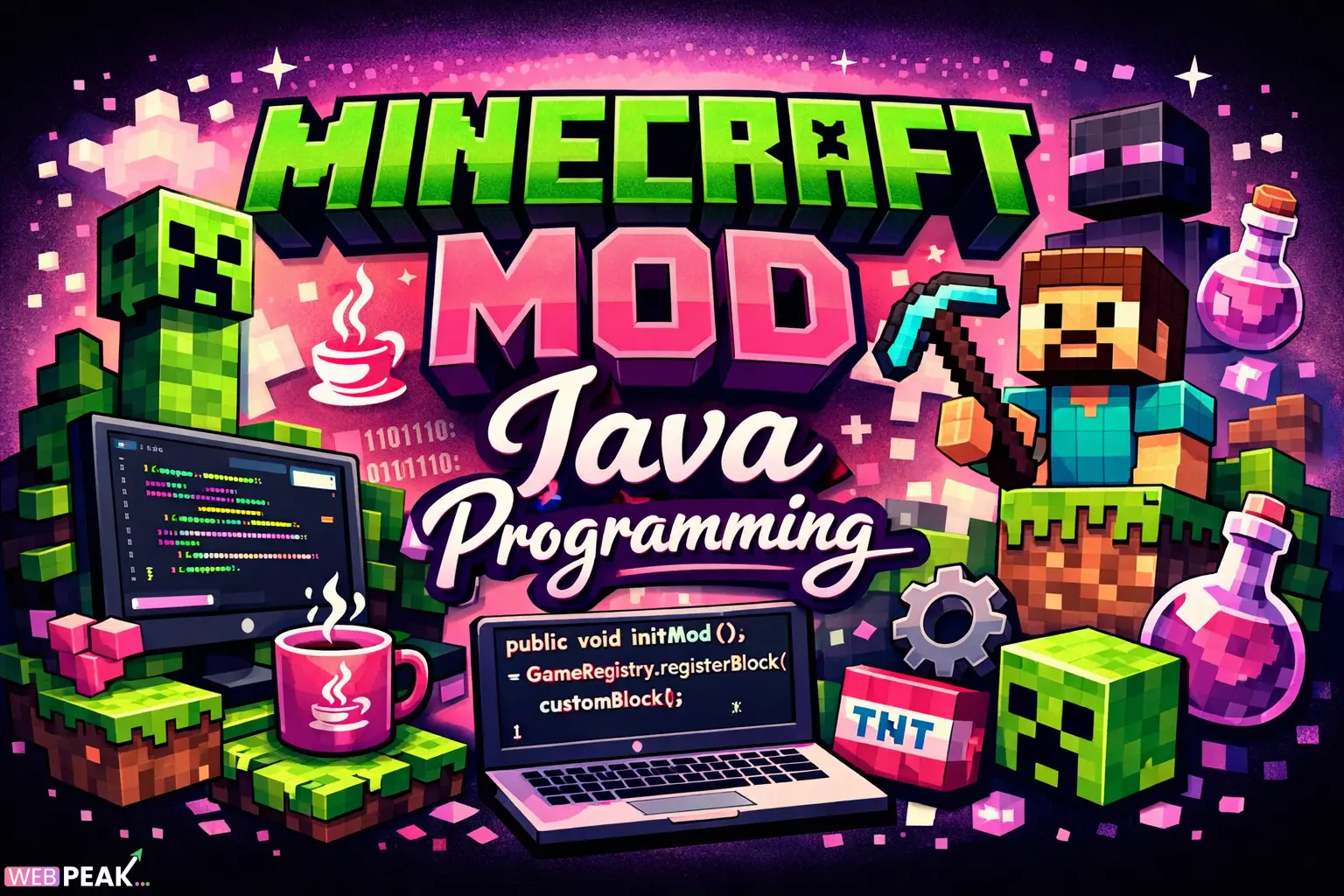AI & SEO: How to Optimize for AI Overviews / AI Search Engines
The rise of artificial intelligence is transforming how search engines work — and how marketers need to think about visibility.AI & SEO are converging faster than ever, as Google’s AI Overviews, Bing’s Copilot, and other AI-driven search features reshape user experience and information delivery. To stay ahead, businesses must learn how to optimize their websites for AI Overviews and next-generation AI search engines. This comprehensive guide explains everything you need to know to future-proof your SEO strategy for the AI era.
Understanding AI Overviews and AI Search Engines
AI Overviews, introduced by Google, use generative AI to summarize key information from across the web. Instead of just showing links, the AI creates an overview or “snapshot” that answers user queries directly. Similarly, AI search engines like Perplexity AI, ChatGPT Search, and Bing Copilot leverage large language models (LLMs) to provide conversational and synthesized answers instead of simple search results.
These AI-driven systems rely on context, structured data, and content quality more than keyword density or backlinks alone. That’s why traditional SEO tactics need an upgrade — one that aligns with how AI models interpret, summarize, and recommend information.
Why AI & SEO Are the Future of Search
In traditional search, ranking was primarily determined by signals like content relevance, authority, and backlinks. But in AI-powered search, the algorithm doesn’t just “rank” — it interprets and rewrites content into natural language summaries.
This means SEO must evolve to focus on:
- Semantic SEO — Understanding intent and context, not just keywords.
- Entity optimization — Ensuring your brand, products, and topics are clearly defined across the web.
- Trust and accuracy — AI prioritizes content with high credibility and factual precision.
- Structured data and schema — Helping AI understand content relationships and hierarchies.
How AI Search Engines Gather and Display Information
AI search engines crawl and process web data differently from traditional algorithms. They use natural language processing (NLP) and machine learning to analyze meaning, tone, and relationships between entities.
Key AI Search Features:
- Generative Summaries: AI systems compile summaries using data from multiple sources.
- Conversational Context: Users can ask follow-up questions, refining results dynamically.
- Citation Inclusion: AI often includes clickable references to original sources — a major SEO opportunity.
- Visual and Structured Results: AI Overviews integrate text, images, charts, and product data.
How to Optimize for AI Overviews and AI Search Engines
Optimizing for AI Overviews isn’t about gaming the system — it’s about clarity, expertise, and machine-readable structure. Below is an actionable checklist to align your SEO strategy with AI-powered search.
1. Focus on Topic Authority and Depth
AI prefers sources that show in-depth coverage and consistent expertise on a subject. Build topic clusters around key themes rather than isolated blog posts.
- Create pillar pages for main topics and link related subtopics internally.
- Update older content regularly to maintain freshness and accuracy.
- Use clear author bios with expertise signals (credentials, experience, etc.).
2. Use Structured Data and Schema Markup
Schema helps AI interpret your content better. Use JSON-LD markup for:
- Articles, products, FAQs, and reviews.
- Organization, author, and event information.
- Breadcrumbs and navigational structure.
You can test your schema implementation using Google’s Rich Results Test and Schema.org validator.
3. Optimize for Conversational Queries
AI search is highly conversational — users ask complete questions rather than short keywords. Optimize for natural language queries using FAQs, long-tail keywords, and question-based headings.
- Include “who,” “what,” “how,” and “why” questions within your content.
- Use natural, human-like phrasing instead of keyword stuffing.
- Leverage tools like AnswerThePublic or People Also Ask for insights.
4. Build and Signal Trust
AI systems prioritize trustworthy sources, often referred to as “E-E-A-T” (Experience, Expertise, Authoritativeness, Trustworthiness). Demonstrate transparency and reliability in your content.
- Provide accurate citations and data sources.
- Show real author names and credentials.
- Include reviews, testimonials, or case studies to build credibility.
5. Improve Content Readability and Structure
AI reads your site much like a human — it favors clarity and logical flow. Use short paragraphs, bullet points, and descriptive subheadings.
- Use a clear hierarchy (H1, H2, H3, etc.).
- Write for users first, then optimize for machines.
- Include relevant visuals and alt text for images.
6. Leverage Entity-Based SEO
Entities (people, places, organizations, things) form the foundation of AI understanding. Make sure your brand and topics are consistently defined across your website and linked data sources.
- Create a Wikipedia, Wikidata, or Crunchbase entry if applicable.
- Use consistent naming conventions and metadata.
- Connect related entities through internal and external links.
7. Optimize for Speed and Core Web Vitals
Performance remains a ranking factor, especially as AI tools assess user satisfaction signals. Improve loading times and technical health.
- Use image compression and lazy loading.
- Implement a CDN and optimize your hosting.
- Reduce JavaScript bloat and unused CSS.
8. Create Multimedia and Structured Content
AI Overviews often pull multimedia assets like videos, infographics, and lists. Add diverse content formats to enhance engagement and discoverability.
- Include step-by-step guides, tables, and explainer visuals.
- Upload videos to YouTube with optimized metadata.
- Use descriptive filenames and captions for images.
9. Encourage Backlinks and Mentions
Backlinks remain essential for authority — AI references often include sites with strong link profiles. Focus on digital PR, thought leadership, and guest publishing.
10. Monitor AI Visibility
Track how your pages appear in AI Overviews and generative results. Use analytics tools and test various query types to measure your exposure.
- Search your keywords in Google Labs’ AI Overview or Bing Copilot.
- Monitor mentions in AI-generated summaries.
- Update content based on new AI behavior patterns.
AI SEO Optimization Checklist
- Use structured data (FAQ, Article, Product, Organization schema)
- Optimize for conversational and long-tail queries
- Improve topical authority with pillar content
- Ensure factual accuracy and citation use
- Optimize for E-E-A-T and build credibility
- Improve Core Web Vitals and page performance
- Use multimedia and entity-based linking
- Regularly analyze AI Overview visibility
FAQs: AI & SEO Optimization
What is AI SEO?
AI SEO is the practice of optimizing websites for search engines that use artificial intelligence to interpret content, such as Google’s AI Overviews or Bing Copilot. It focuses on structured data, contextual relevance, and authority signals.
How does AI change traditional SEO?
AI changes SEO by prioritizing semantic understanding over keyword matching. It values expert-driven, trustworthy content that provides accurate, well-structured answers.
How do I appear in AI Overviews?
To appear in AI Overviews, ensure your content is clear, fact-based, and includes structured data. Maintain topical authority and use schema markup for better AI interpretation.
Is link building still important for AI SEO?
Yes. Backlinks signal authority to both traditional and AI-powered search engines. High-quality, contextual backlinks increase your chances of being cited in AI-generated results.
Can AI-generated content rank in search?
It can, if it’s accurate, valuable, and human-reviewed. However, search engines penalize low-quality or spammy AI-generated pages lacking originality or expertise.
How can I prepare my business for AI search?
Focus on content quality, structured data, and reputation building. Partnering with experts like WEBPEAK — a full-service digital marketing company offering Web Development, Digital Marketing, and SEO services — can help you adapt to AI-driven search evolution effectively.
Conclusion
The fusion of AI & SEO marks a fundamental shift in how online visibility works. AI Overviews and intelligent search engines prioritize accuracy, expertise, and clarity over keyword-heavy tactics. By optimizing for structured data, semantic meaning, and user trust, you can ensure your website remains visible, credible, and competitive in the era of AI-driven search.





